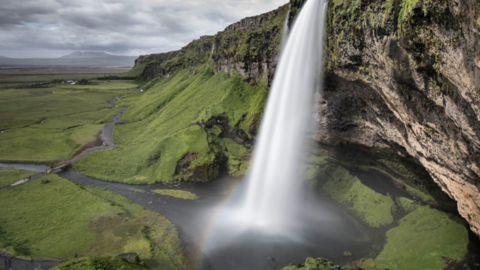From peatland restoration and reclamation to environmental planning or studying soil vegetation and water quality, our researchers our focused on the impacts humanity is having on land and water.
Get to know their areas of expertise.
Advancing one Sustainable Development Goal


Our researchers
Helen Jarvie
Geography and Environmental Management
- Eutrophication and water-quality management;
- Sources and biogeochemical cycling of macronutrients (phosphorus, nitrogen and carbon) in freshwaters;
- Impacts of nutrient enrichment and remediation on water quality and ecological status of surface waters.
Quinn Lewis
Geography and Environmental Management
- Morphology and evolution of fluvial landscapes
- Research on process, form, and the transfer of material and energy that links morphology and evolution of fluvial landscapes
- Developing new techniques to study lake and reservoir water levels globally with remote sensing
Merrin Macrae
Geography and Environmental Management
-
Effects of changing hydrologic conditions on biogeochemical processes in both natural and disturbed environments
- Hydrologic change including those that result from land-use modification (e.g. agriculture, drainage) or climate variability
Richard Petrone
Geography and Environmental Management
-
Understanding of soil – vegetation – atmosphere interactions as influenced by hydrologic and climatic conditions
- Trace gas exchange in wetland and forested systems
- Interactions between vegetation and hydrology and climate (weather), and modeling the impacts of climatic and land-use stresses on these linkages
Michael Stone
Geography and Environmental Management
-
Environmental planning
- Water quality
- Sediment/water interactions
- Water resources management
Maria Strack
Geography and Environmental Management
-
Understanding interactions between ecology, hydrology, biogeochemistry and soil properties in wetland ecosystems
- Quantifying greenhouse gas emissions related to land-use impacts on wetlands
- Determining impact of climate change on peatland ecosystems
- Evaluating the peatland function following restoration and reclamation
Chantel Markle
Department of Geography and Environmental Management (GEM)
- Wildlife ecology and management
- Herpetology
- Effects of climate-mediated disturbances on habitat use and function
- Ecohydrology of wildlife habitat
- Habitat restoration and management
- Can also supervise graduate students in the School of Environment, Resources and Sustainability and Geography and Environmental Management






